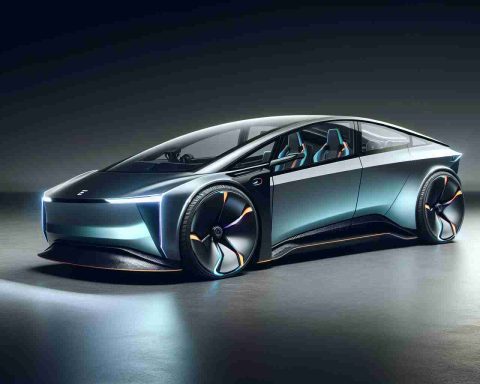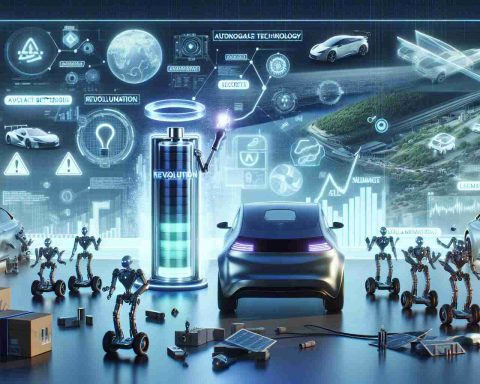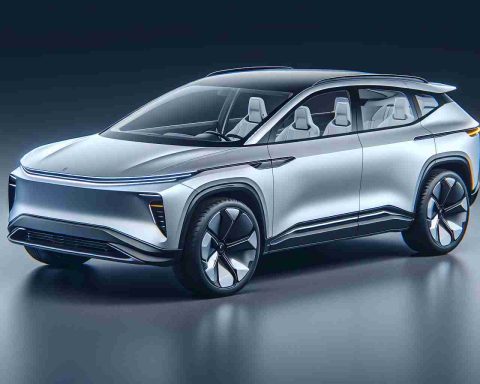Groundbreaking Developments in the Electric Vehicle Industry
Emobi, a frontrunner in North American EV charging infrastructure, has been selected as a finalist for the esteemed SXSW Pitch 2025 in Austin, Texas. This event recognizes cutting-edge startups, with Emobi set to showcase its revolutionary Plug & Charge technology, JustPlug. This innovative solution eliminates the need for hardware updates by enabling secure and automatic authentication for EV charging, aligning with the ISO 15118 standard, which eases public charger access and alleviates range anxiety.
Meanwhile, ZM Trucks, a division of ZO Motors, has inaugurated its first manufacturing facility in Fontana, California. Spanning 210,000 square feet, this plant will initiate production in 2025, focusing on electric commercial vehicles. The establishment of this facility not only marks ZO Motors’ commitment to sustainable transport but also aims to create numerous jobs in the region.
In response to Shell’s discontinuation of its Sky software, Zevtron has stepped in to assist affected users with its flexible and customizable OCPP-compliant platform. This solution promises a seamless transition for third-party EV charger operators, mitigating potential disruptions.
Furthermore, SES AI has recently secured $10 million in contracts focused on AI-enhanced battery materials, underlining its commitment to evolving battery technology. Lastly, a collaboration between Rekor Systems and SoundHound AI aims to enhance emergency vehicle operations with advanced voice recognition software, boosting safety in critical situations.
Electric Vehicles: Driving Change in Society and the Global Economy
The electric vehicle (EV) revolution extends beyond technological advancements, shaping broader societal and economic landscapes. As countries ramp up investments in EV infrastructure, cities are witnessing a cultural shift towards sustainability and reduced carbon footprints. This transformation promotes awareness about environmental issues, fostering a wider societal push for greener alternatives in transportation and energy consumption.
The establishment of facilities like the one by ZM Trucks in California can have profound implications for local economies. Job creation in manufacturing is crucial, particularly as the economy continues to adapt post-pandemic. The EV sector not only engages existing workers but also creates new roles requiring specialized skills in EV technology and infrastructure development, aligning with market demand and sustainable practices.
Additionally, as EV adoption accelerates, its environmental implications become increasingly significant. The extraction of raw materials for batteries necessitates responsible sourcing to mitigate negative impacts on ecosystems. Innovations such as those from SES AI are vital, as they aim to enhance battery efficiency while minimizing environmental costs. Looking ahead, integration of AI and digital solutions will also shape the EV landscape—solutions like Zevtron’s platform offer critical support for operational continuity among charger operators, simplifying the transition towards a fully electric future.
As the global economy pivots towards decarbonization, the EV sector stands at the forefront, suggesting that the days of fossil fuel reliance may soon be behind us. The interconnectedness of technological advancement, job creation, and environmental stewardship underscores the urgency of embracing this transition for future generations.
Revolutionary Advancements Transforming the Electric Vehicle Landscape
Introduction
The electric vehicle (EV) industry is witnessing a surge of transformative innovations that promise to reshape the landscape of sustainable transport. From advanced charging technologies to new manufacturing facilities and AI-enhanced battery materials, companies are racing to enhance efficiency, safety, and accessibility in the EV space.
Key Innovations in EV Charging
1. Emobi’s Plug & Charge Technology
Emobi, an industry leader in EV charging infrastructure, is at the forefront of innovation with its Plug & Charge technology known as JustPlug. This groundbreaking solution complies with the ISO 15118 standard, which facilitates automatic and secure vehicle-to-grid communications. By eliminating the need for hardware updates, JustPlug enhances user convenience by allowing EV owners to simply plug in and charge without manual authentication, effectively addressing range anxiety among users.
2. Zevtron’s Customizable Solutions
In a reactive move to industry changes, Zevtron has introduced a flexible and customizable platform compliant with the Open Charge Point Protocol (OCPP) to assist users affected by Shell’s discontinuation of its Sky software. Zevtron’s platform offers compatibility for various charger types, allowing operators to seamlessly manage and operate their EV chargers, thus reducing the impact of transitioning to new systems.
Manufacturing Innovations
3. ZM Trucks’ New Facility
The launch of ZM Trucks’ manufacturing facility in Fontana, California, set to kick off production in 2025, represents a significant investment in electric commercial vehicles. Occupying a vast 210,000 square feet, this facility is a testament to ZO Motors’ commitment to sustainable transport solutions while promising to bring jobs to the local economy. This aligns with the growing trend toward electrifying commercial fleets, which are crucial for reducing greenhouse gas emissions.
Advancements in Battery Technology
4. SES AI’s $10 Million Contracts
SES AI’s recent acquisition of $10 million in contracts highlights the increasing investment in AI-enhanced battery materials. This focus not only showcases the potential for improved battery performance and longevity but also reflects a broader industry trend emphasizing smarter and more sustainable energy solutions. Innovations in battery technology are critical as the demand for longer-range EVs continues to rise.
Enhancements in Safety and Operations
5. Rekor Systems and SoundHound AI Partnership
A notable collaboration between Rekor Systems and SoundHound AI is set to revolutionize emergency vehicle operations. By integrating advanced voice recognition software, the partnership aims to enhance response times and operational safety in critical situations, underscoring the role of technology in improving public safety.
Conclusion
As the electric vehicle industry continues to evolve, these groundbreaking developments illustrate a promising future for greener transportation options. With innovations targeting charging infrastructure, manufacturing processes, battery technology, and enhanced safety measures, the momentum in the EV sector shows no signs of slowing down.
For more insights into the electric vehicle market, visit EV Industry.


















